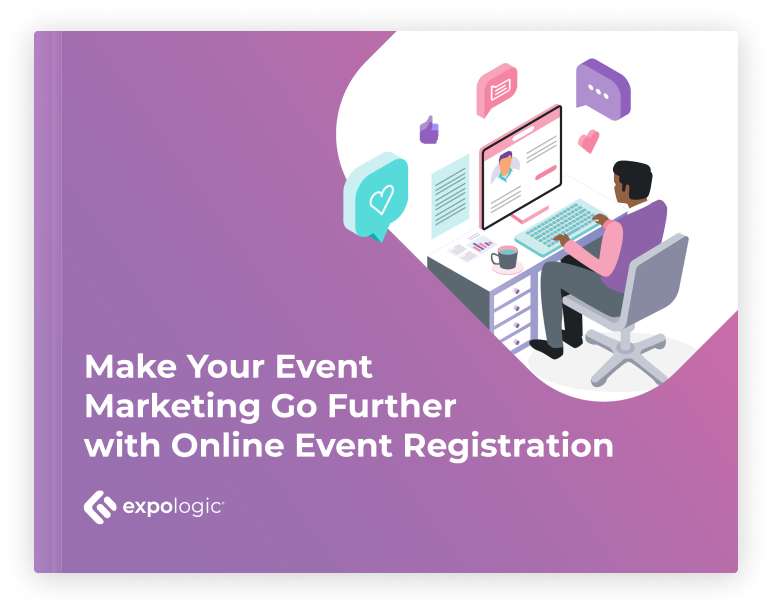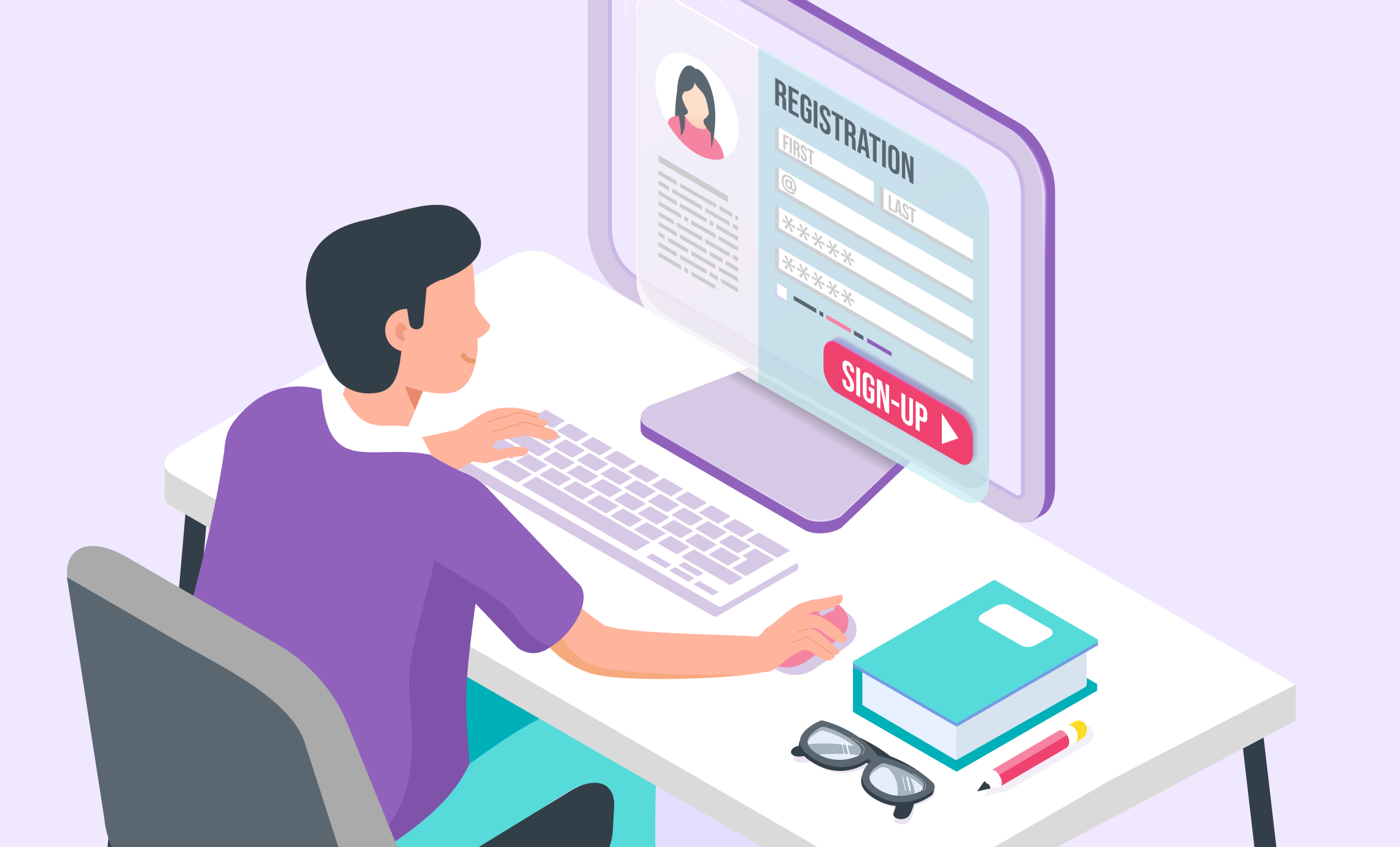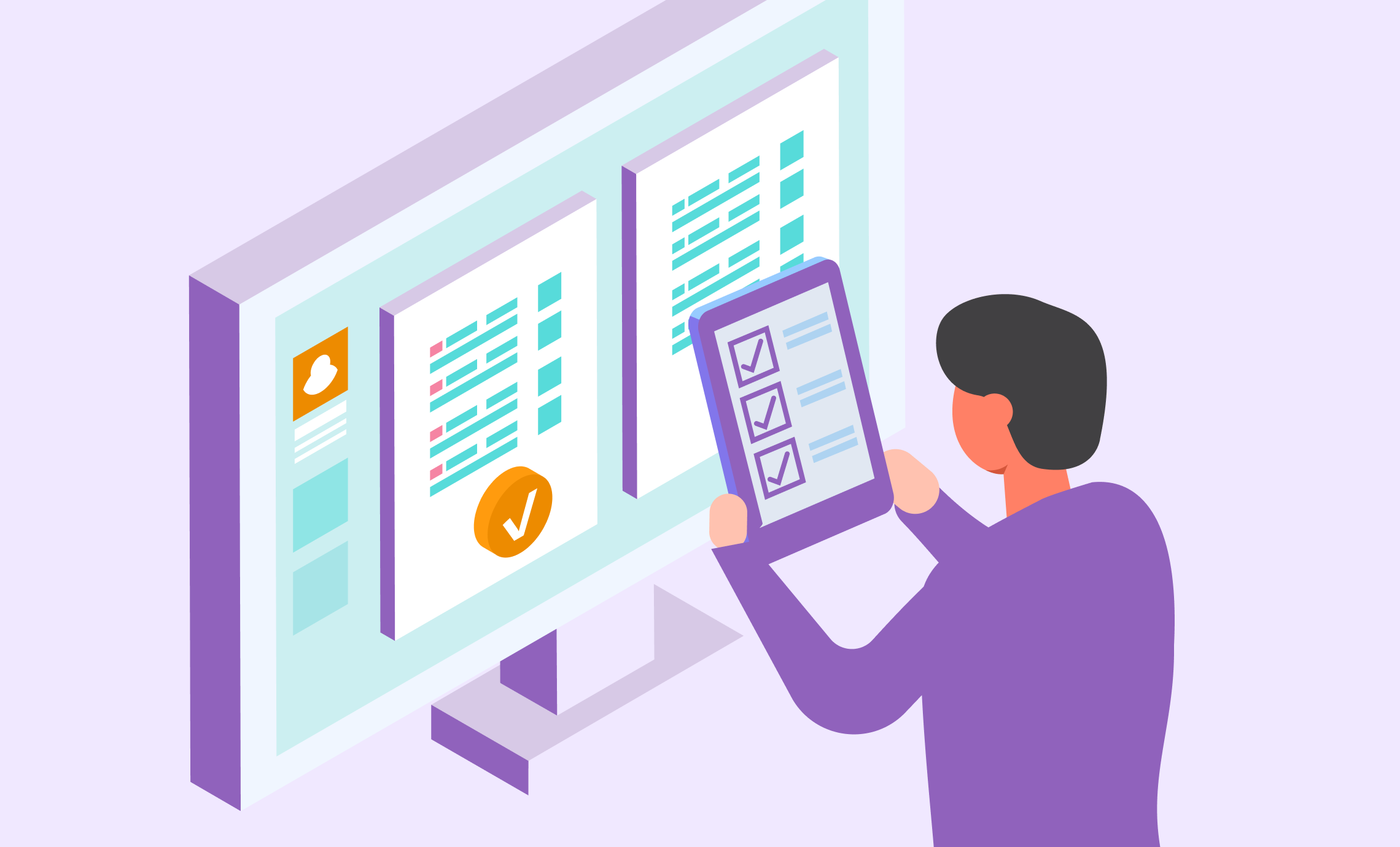Meetings and events require registration processes, especially for large trade shows that need to run smoothly. Registration allows you to attract participants, provide them with information about your event, and give them their first impression of your trade show, which might affect how satisfied they are with it. The visitor experience is essential for event management, and it should start with excellent event registration. For example, your event registration forms should have a modern, intuitive design that pleases your target audience. You need to avoid certain common event registration mistakes to prevent alienating potential guests. Here are eight causes of poor event registration and how to avoid them.
1. It doesn’t seem valuable
It is a common mistake for event planners to undervalue the importance of the registration process; they are so preoccupied with the event itself that they fail to recognize the significance of the trade show registration process. Making registration as easy as possible is crucial when it comes to trade show preparation. After marketing, registration is the first point of contact with attendees. As a result, your registration process is the first thing that the audience will consider when deciding whether to attend your event.
Why should People come? Is it apparent?
When you advertise your event, it goes without saying that you should describe what your event is all about and highlight why your target audience should attend. However, the registration procedure can be an effective tool for persuading people to attend your event. In today’s highly-competitive events industry, differentiate yourself by emphasizing the importance of your show through your registration process.
The secret to organizing an effective event is creating a learning experience that attendees can’t obtain anywhere else. An excellent strategy to add value and improve the event experience is by starting with the registration process; provide original content that can be used as a valuable resource. In addition, you can organize your registration through mobile apps, video material, resource libraries, and blog postings. You can offer discounts or freebies for on-site registration to make the registration more significant.
2. It doesn’t seem urgent
Another common mistake that event planners make that you want to avoid is making your registration forms with no sense of urgency. Instead, your registration processes should offer something that people want. Regardless of how well you have planned for your online event, if people don’t perceive it as urgent, they are likely to pass it by. Only when your registration includes something that people actively want does urgency work.
Why should people come now?
In addition to explaining why visitors should attend, your registration should explain why visitors should attend right away. Of course, your trade show should meet the demands of your target market, however, your registration should also demonstrate that they will benefit from attending your event. It should increase demand and urgency by displaying that it can meet their wants and needs.
If they wait too long to register, they’ll forget to come
Your trade show won’t be seen as essential if there is no urgency. The audience is not persuaded that your event covers any topics or individuals they must encounter — the potential customer cannot see how attending the event will benefit them. If that is the case, the registration did a poor job of showcasing essential information or particular individuals who will take care of the prospect’s unique needs.
Prospects are less likely to register if they have no emotional reason to go. Additionally, if they registered, they could fail to show up. Therefore, avoid registration forms and procedures that lack urgency.
3. It’s difficult to register and leads to causes of poor event registration
A difficult registration process is another reason why many people in your target audience won’t sign up for your event. In our fast-paced environment, consumers expect quick and simple solutions to all their needs. If they can’t quickly register for your event, they are likely to find another comparable event.
You should have a strong registration process that establishes a single, convenient point of collection for all the data you need from your participants. Another great tactic that will make your event preparation a lot more efficient, effective, and uncomplicated is to use an online registration system that has the required features. Your event website can also include a registration system that can be shared as a link for easy distribution. Additionally, you can customize it to include branding for your business or event.
Forms, emails, etc. — everything should be accessible!
In the modern world, online registration is recommended since people prefer digital solutions. It is up to you what information an online registration system gathers — most systems are completely customizable. However, online forms, emails, and other online tools used for registration should always be accessible and simple to use. More significantly, be prepared to help your visitors with any queries or clarifications they may have regarding your event or the registration process. Your phone, email, and contact details should be easily accessible, and you should reply as soon as possible.
4. It’s expensive
Expensive trade show registration results in fewer attendees. People are unsure of what they will receive if they attend your event, and they will believe it is a risk to spend a costly registration fee when they are unsure if their needs will be satisfied.
People don’t want to pay for it
Even if your event is fascinating, people don’t want to pay to attend it. They may easily choose another event that is free or less expensive if your event is too pricey.
Your price plan is crucial. If you charge too much for your event, you risk scaring everyone away; if you charge too little, or make it free, you run the risk of giving the impression that your event is just a last-ditch effort to get people in a room so you can badger them into purchasing whatever it is that you’re offering or selling.
Is It affordable for your target audience?
How much should you charge? Start by examining the value that your event offers. The more you can charge depends on the size of the problem you’re trying to solve, the stature of the individuals you’re giving participants access to, and the distinctiveness of the value you’re providing. Additionally, it is simpler to demand greater charges if your tradeshow is recognized as a leader in your field. However, the safest way is to know your target audience and set an affordable price for them.
5.It conflicts with other events and causes poor event registration
People have individual lifestyles and interests that they prefer to concentrate on at particular times. Even if you are certain that your target audience is interested in your event and that you have a good understanding orf who they are, they may have other, more important events to attend. It’s crucial to schedule your event during a time when it won’t conflict with other large events in the area or that your target audience would be interested in. Avoid these causes of poor event registration.
What is your target audience doing?
Do your homework, identify your target market, and understand what they are doing during various seasons of the year. For example, if you are attempting to attract individuals from the construction and agriculture industries, you wouldn’t want to have an event during the winter — your target market will find it inconvenient.
Another example of how to capitalize on your target market’s activities is to arrange your event with another industry event to take advantage of the participants already in the region.
Find a date that’s open, fun, and accessible for the most people
Regardless of how excellent your event is, keep in mind that not everyone you want may be able to attend if they are unavailable or attending other activities. Consider dates that are accessible, enjoyable, and available to the greatest number of individuals when researching your target audience to enhance the likelihood that they will attend your event.
6. There’s bad weather
One of the reasons that people can’t attend your event is the weather, which is uncontrollable. There are, however, steps you can do to lessen the chance that bad weather may reduce the number of attendances to your event:
- Early preparation for emergencies
- Research the weather and upcoming storms
- Keep track of weather forecasts
- Identify the important individuals who will be essential in case of a weather disaster
- Have a documented strategy that identifies possible triggers connected to the weather
- Consider the weather while choosing an event location
- Donate shelter and air conditioning to the event site
- Secure structures in the event venue
People don’t want to or can’t leave their homes
While you could prepare for the most obvious natural occurrences, such as strong winds or rain, don’t forget to investigate other potential problems particular to the location, region, or season. It is reasonable that many might not want to leave their homes or even be unable to travel due to sudden or unanticipated bad weather on the day of the event.
If applicable, you can create your event online or schedule it to go live for participants that are stuck at home unexpectedly. Streaming your event online allows individuals who are unable to come due to bad weather to still participate. While in-person attendance is always the preference, having someone attend online is better than them not being able to attend at all.
7. It’s too far away
Finding the right location is the first thing you must do as an event planner for each new event. Location is the most crucial component of every event. Most of the time, the event venue cannot even be chosen until the other arrangements are all in place. Location is a crucial consideration to the attendees because it can have a big impact on who attends your event. If your event venue is in an unpleasant area or too far from public transportation, you’ll restrict the number of attendees. Even if your audience is interested in your event, if they discover the venue is difficult to get to or far away, they may be forced to choose not to attend.
Travel can be complicated
For your attendees, travel may be challenging if your venue is too far away. To suit their needs, you must consider their location when researching your target audience. It is best to find a location that is convenient for your target audience. In addition, an accessible location will improve the likelihood that people will want to come.
How can you make this easy/inexpensive?
The location of your event should be easy to find and not difficult to get to. Make sure to provide your participants with any information they’ll need to be able to find the venue.
If for some reason you’re forced to choose a site that is far away from your target audience, try to pick a location that is easy to get to, especially if they need to commute by train or bus for a cheaper and simpler trip.
8. It wasn’t marketed well and leads to causes of poor event registration
Planning an event involves considering how it will go, and also how to market it effectively. Never forget that no matter how well you plan your event, no one will register if they don’t know it’s happening. Marketing is the most crucial component of event planning.
Causes of Poor Event Registration from the right people not hearing about it?
The best way to market your event, particularly huge trade shows, is to know what your target audience is. Once you understand your target audience, you can easily tailor your marketing strategy to reach the right audience. You can create personalized content that targets the right people and use platforms to reach them. The best example of effective marketing strategies to market your event is through social media marketing, email marketing, helpful blogs, engaging content on your website, and of course, word of mouth.
This is a learning experience, you can grow for next time
Event planning is a learning process, and you can always improve for the next one. Take into account all essential aspects that may significantly influence your registration and improve the number of guests. You can easily avoid typical mistakes as you go along, keep up with best practices, and pick up new skills to get better outcomes.



